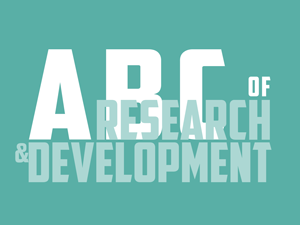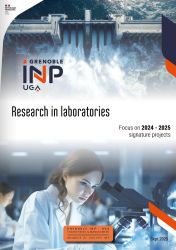article written by Stéphanie Walcker
This notion is used in research contracts (usually signed with an industrial partner) but also in consortium agreements concluded between the partners of an ANR/European/BPI/Ademe/etc. project.
If the knowledge is protected, DRIVE should identify this knowledge in the contract and define the best strategy for leveraging it.
If it is not protected, DRIVE will study, depending on your future projects, the best way to protect it (patent, filing with the agency for the protection of programs, soleau envelope, trademark, secret, etc.).
Yoann MICCOLI - Intellectual Property and Contracts Officer
Stéphanie WALCKER - Lawyer in charge of partnership research projects
Violaine BIGOT - Lawyer in charge of institutional agreements and conventions
This notion is used in research contracts (usually signed with an industrial partner) but also in consortium agreements concluded between the partners of an ANR/European/BPI/Ademe/etc. project.
What is it for?
The idea is to identify the unpublished knowledge of the laboratory staff involved in the research project, in order to define the exploitation rights that can be granted to contractual partners via licenses.
These licenses can be free of charge if the right granted is limited to the needs of the project / or for research purposes.
These licenses are paying when the partner’s objective of is to commercialize results.
These licenses can be free of charge if the right granted is limited to the needs of the project / or for research purposes.
These licenses are paying when the partner’s objective of is to commercialize results.
What does it cover?
This is all the as yet not disclosed knowledge developed/acquired by researchers during their research activities. It can be a methodology, a database, a know-how, a software, etc.
This knowledge can be protected by an intellectual property title (patent, etc.) or by copyright (software, database).
It is said to be prior when it was developed before the contract was signed.
It is said to be Own Knowledge when it is obtained independently of the execution of the contract.
An example: a research team has developed a software for the optimization of a production line. The source codes of the software have not been disclosed. The software could be licensed by domain (i.e., by market):
- to an industrialist in the food industry;
- or to an industrialist working in the automotive field;
- or to another in the aeronautics field, etc.
This knowledge can be protected by an intellectual property title (patent, etc.) or by copyright (software, database).
It is said to be prior when it was developed before the contract was signed.
It is said to be Own Knowledge when it is obtained independently of the execution of the contract.
An example: a research team has developed a software for the optimization of a production line. The source codes of the software have not been disclosed. The software could be licensed by domain (i.e., by market):
- to an industrialist in the food industry;
- or to an industrialist working in the automotive field;
- or to another in the aeronautics field, etc.
The right conduct:
When you start thinking about setting up a new research collaboration, it is important to identify whether you have prior and/or proprietary knowledge that might be of interest to your future partners, and to report this to DRIVE as soon as possible.
DRIVE’s Role:
If the knowledge is protected, DRIVE should identify this knowledge in the contract and define the best strategy for leveraging it.If it is not protected, DRIVE will study, depending on your future projects, the best way to protect it (patent, filing with the agency for the protection of programs, soleau envelope, trademark, secret, etc.).
Contacts:
Yoann MICCOLI - Intellectual Property and Contracts OfficerStéphanie WALCKER - Lawyer in charge of partnership research projects
Violaine BIGOT - Lawyer in charge of institutional agreements and conventions




